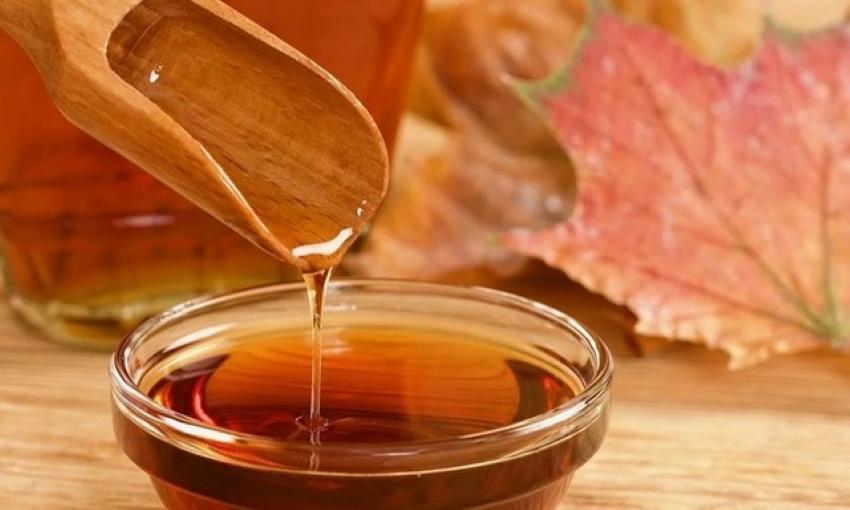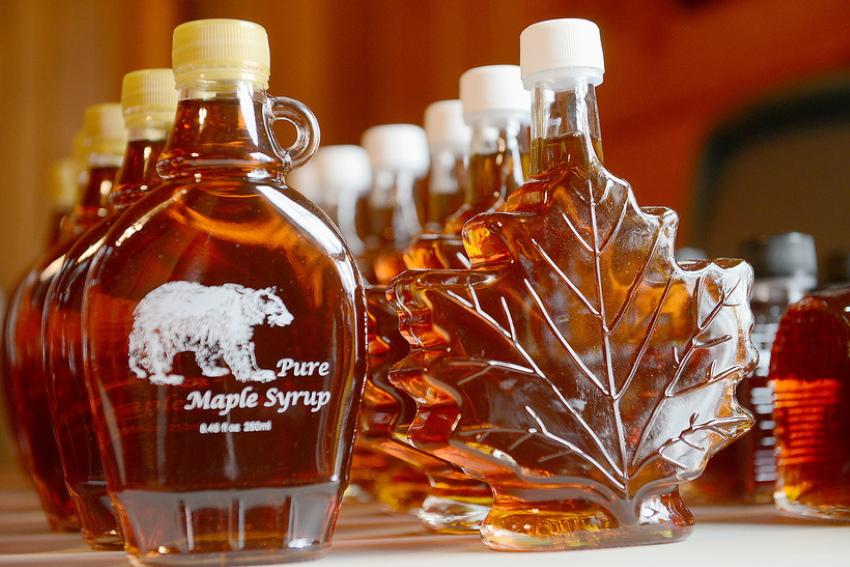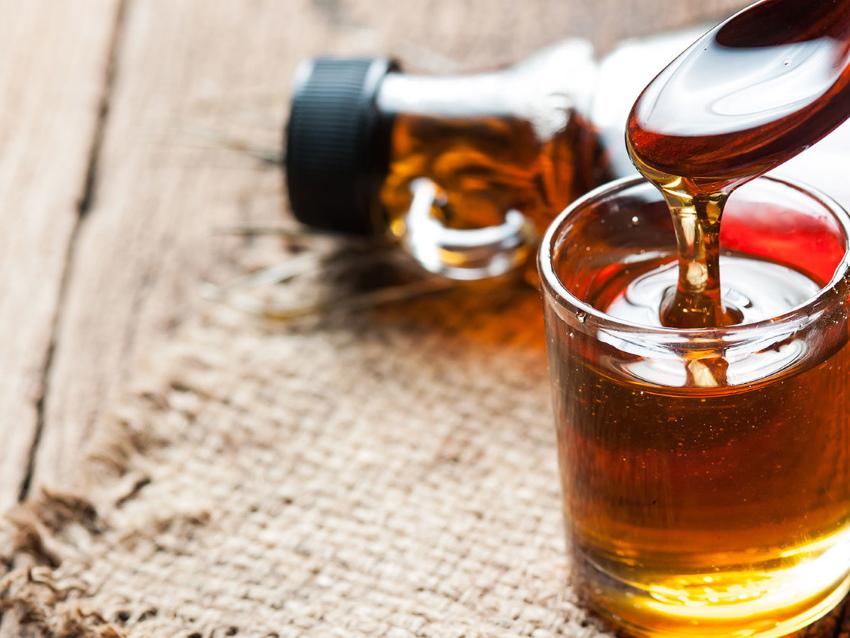Maple syrup - the benefits and harms of a natural, but expensive, sugar substitute
 Amber sweet syrup with an original taste is used in Western countries instead of jam. They are poured over pancakes, pancakes, ice cream, added to sauces. Maple syrup, the benefits and harms of which have long been proven, is very popular abroad. It is a sugar substitute, and natural, which contains many minerals and vitamins. At the same time, there is not a single gram of sugar in the real product itself. It consists of pure maple sap, which is boiled down to the desired density until the liquid component evaporates. At the same time, without adding anything else. And the juice itself is extracted in the same way as our birch. In the spring, a hole is made in an adult tree and a tube is inserted. Through it, the juice flows into a substituted container.
Amber sweet syrup with an original taste is used in Western countries instead of jam. They are poured over pancakes, pancakes, ice cream, added to sauces. Maple syrup, the benefits and harms of which have long been proven, is very popular abroad. It is a sugar substitute, and natural, which contains many minerals and vitamins. At the same time, there is not a single gram of sugar in the real product itself. It consists of pure maple sap, which is boiled down to the desired density until the liquid component evaporates. At the same time, without adding anything else. And the juice itself is extracted in the same way as our birch. In the spring, a hole is made in an adult tree and a tube is inserted. Through it, the juice flows into a substituted container.
The main and only high-quality syrup producer is Canada. And he himself costs decent money, because for 1 liter of the finished product you need at least 4 buckets of juice.
Maple syrup - benefits and harms

What gives the body the use of syrup

In moderate doses, syrup has a positive effect on the body:
- activates the work of the pancreas;
- cleans the blood;
- relieves inflammation;
- enhances immunity;
- improves the skin;
- serves as the prevention of prostatitis and Alzheimer's disease;
- lowers cholesterol;
- slows down and stops atherosclerosis.
Is there any harm from maple syrup
 The main contraindication to the use of this useful product is a possible allergy. Or individual intolerance. Also, do not give it to young children under 3 years old for the same reason. In addition, you can not get involved in syrup for pregnant women with increased uterine tone and hypertensive patients.
The main contraindication to the use of this useful product is a possible allergy. Or individual intolerance. Also, do not give it to young children under 3 years old for the same reason. In addition, you can not get involved in syrup for pregnant women with increased uterine tone and hypertensive patients.
In general, no one needs to lean heavily and eat a healthy product with spoons. In small doses, it is beneficial.
But the abuse of syrup and taking more than 30 g per day will give side effects in the form of nausea and dizziness. In large quantities, syrup does raise blood glucose levels and can cause unexpected allergies.